Tibetan science students, professionals and monastic students converged at Tibetan Youth Hostel in Delhi from 19-22 December, 2018 for the 5th Tibetan Science Conclave organized by Tibetan Scientific Society. The conclave is a forum for Tibetan science students, scholars and professionals to converge, explore, learn and network with like-minded peers on topics covering modern science as well as Buddhist Philosophy and Buddhist Science. The Dalai Lama Trust, India sponsored this conclave.
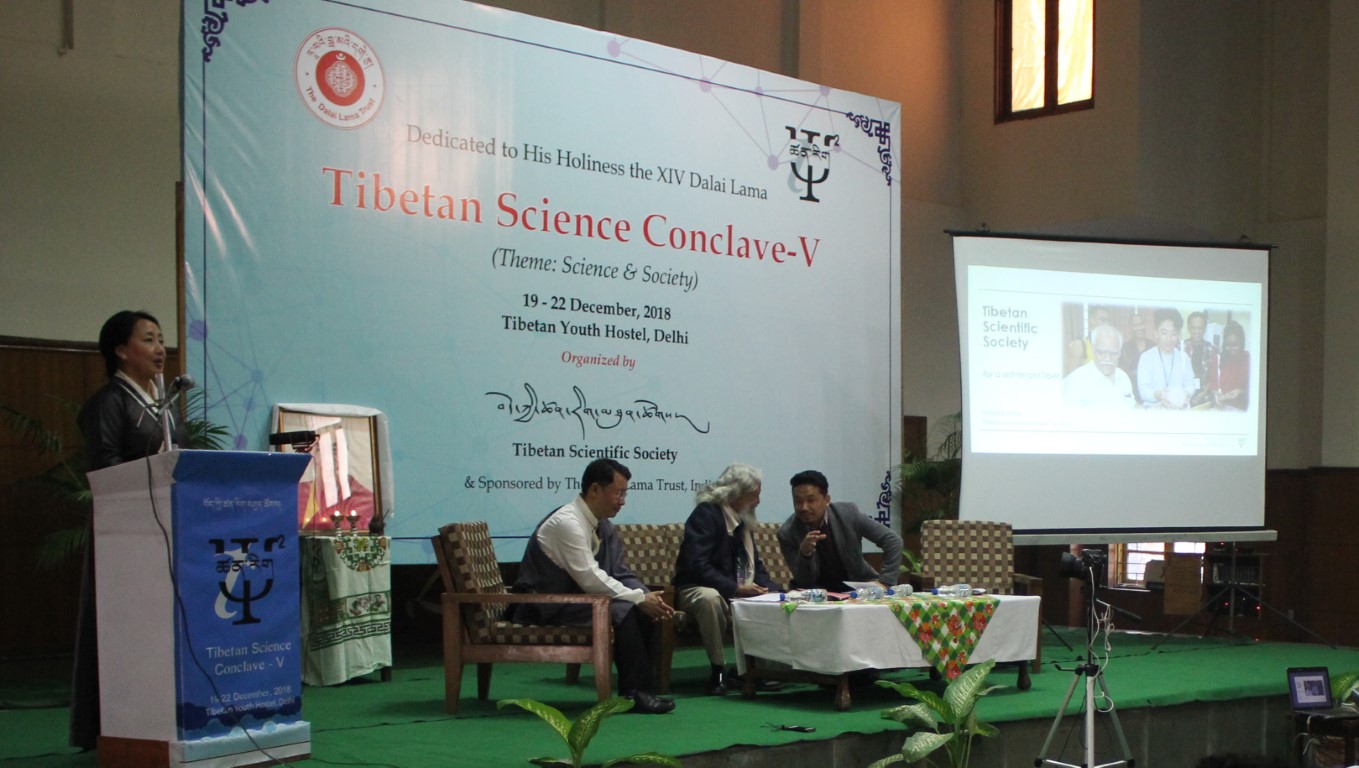
Since its establishment in 2008, the society has organized four successful conclaves focusing on various themes. The theme for this year’s conclave was ‘Science and Society’. This theme was chosen because of the recognition that one cannot engage in public conversation of science without speaking about the relation of science to human society, both in terms of applications as well as public understanding of science. It is a theme that has great relevance in today’s world. Various aspects of the theme were discussed during the conclave including societal applications of science, science communication and ancient Indian/Buddhist psychology and logics.
The first day of the conclave was dedicated to discussing the theme of ‘Science and Society’ in general. Dr. Pema Yangchen, Education Kalon of Central Tibetan Administration (CTA), was the Chief Guest of the event and Prof. Y.S Rajan, Honorary Distinguished Professor at Indian Space Research Organization (ISRO), was the Guest of Honor and the keynote speaker. The day started with a welcome note by the administrator of Tibetan Youth Hostel Dr. Tenzin Thupten, and an introductory presentation on Tibetan Scientific Society and The Dalai Lama Trust, India by Dr. Tenzin Nyibum, Secretary of the society. Dr. Pema Yangchen then gave a brief opening remarks in which she welcomed the keynote speaker, the participants, and acknowledged the organizers.
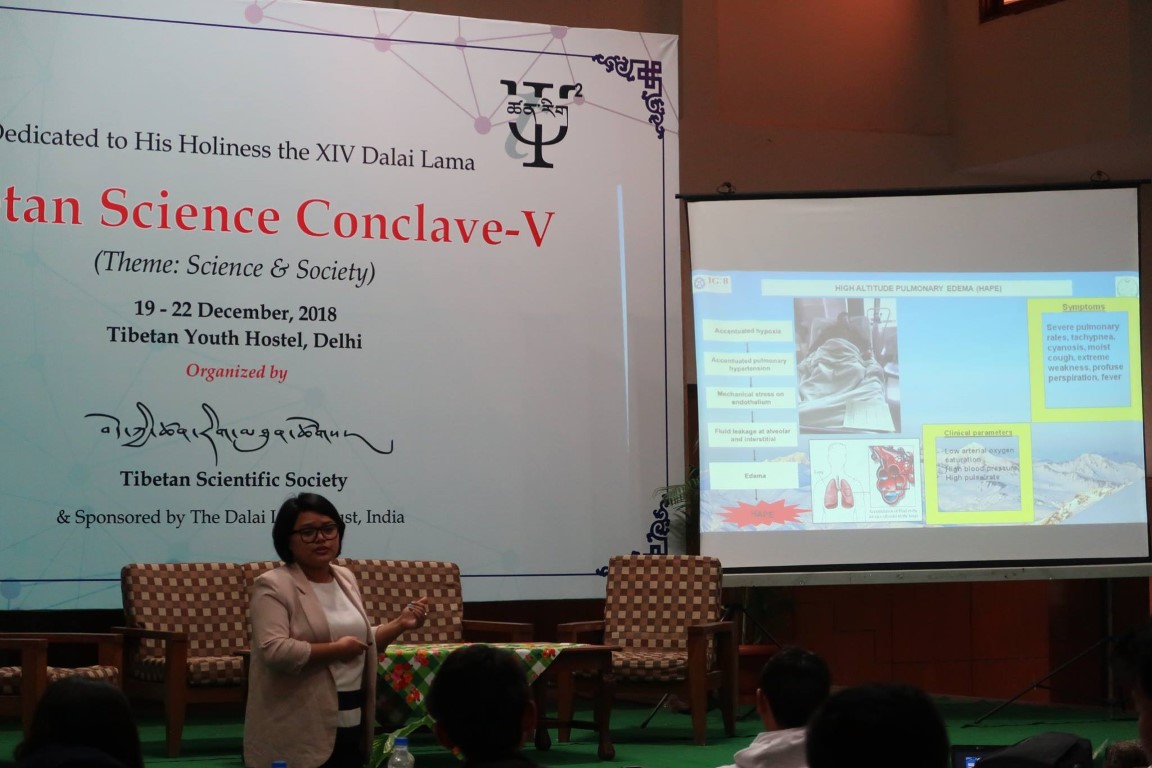
The convener of the conclave, Dr. Tenzin Choephel, introduced the keynote speaker Prof. Y.S. Rajan. Prof. Rajan is an Indian professor, physicist and administrator. He has made key contributions to space research, technology and applications since 1964 and continues to be an expert in space matters. He was awarded Padma Shri in 2012 for his contribution to science and engineering in India. His lecture was titled ‘Science: Opportunities, Benefits, Limitations’, in which he spoke about opportunities for and benefits from the pursuit of science and allied disciplines. He explained them at the global, societal, and individual levels. His lecture was immediately followed by lively discussions with the participants. Questions came from participants at all levels including school students from Tibetan Children’s Village, Selakui. Following this, the Honorable Education Kalon held an hour-long interactive session with the attendees. She spoke about her experience doing research in her own field of education and how that could be applied in other fields as well. Moreover, she spoke about the basic education policies of CTA. After lunch, Hassan Jawaid Khan, editor at CSIR-National Institute of Science Communication and Information resources, made a presentation on ‘science communication’ and conducted an hour-long workshop on popular science writing.
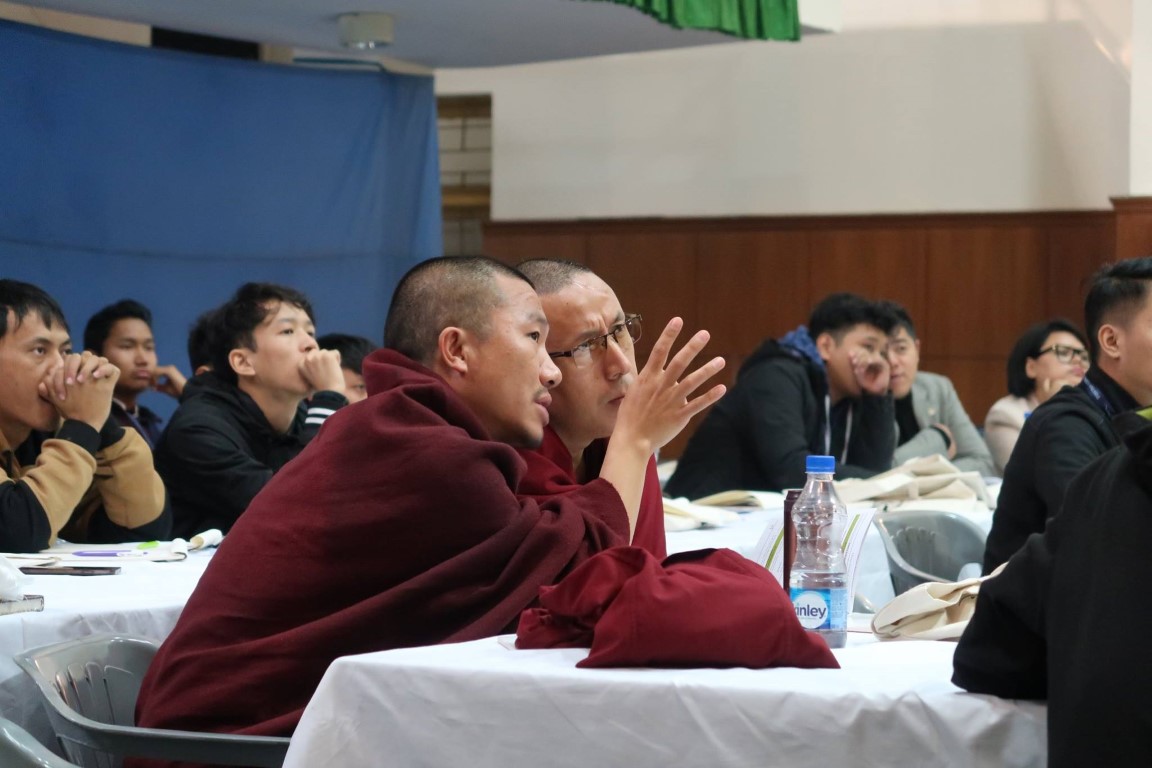
The second day of the conclave was dedicated to technical presentations from the various featured speakers and the participants. The morning session comprised of presentations on topics covering societal applications of science, scientific validation of Tibetan medicine, science curriculum in monastic education, scientific investigation on the practice of Tibetan monastic debate, and science and ethics. In the afternoon, two concurrent sessions were held including a physical science session and a life science session. Participants from both India and abroad presented their research work with opportunities for attendees to ask questions and engage in discussions. At the end of the day, Dr. Tenzin Choephel, an aerospace engineer from the United States, conducted a paper airplane building workshop and a contest which was not only educative but also a fun exercise.
On the third day, participants visited premier centers of scientific research in Delhi. The centers included Institute of Genomics & Integrative Biology, International Center for Genetic Engineering & Biotechnology, and Inter University Accelerator Center. The participants had the opportunity to interact with the resident scientists and learn about the cutting-edge scientific equipment and technologies used in advanced scientific research in fields covering physical sciences and life sciences. On the conclusion of the visits, the participants regrouped and shared their experiences from their visits.
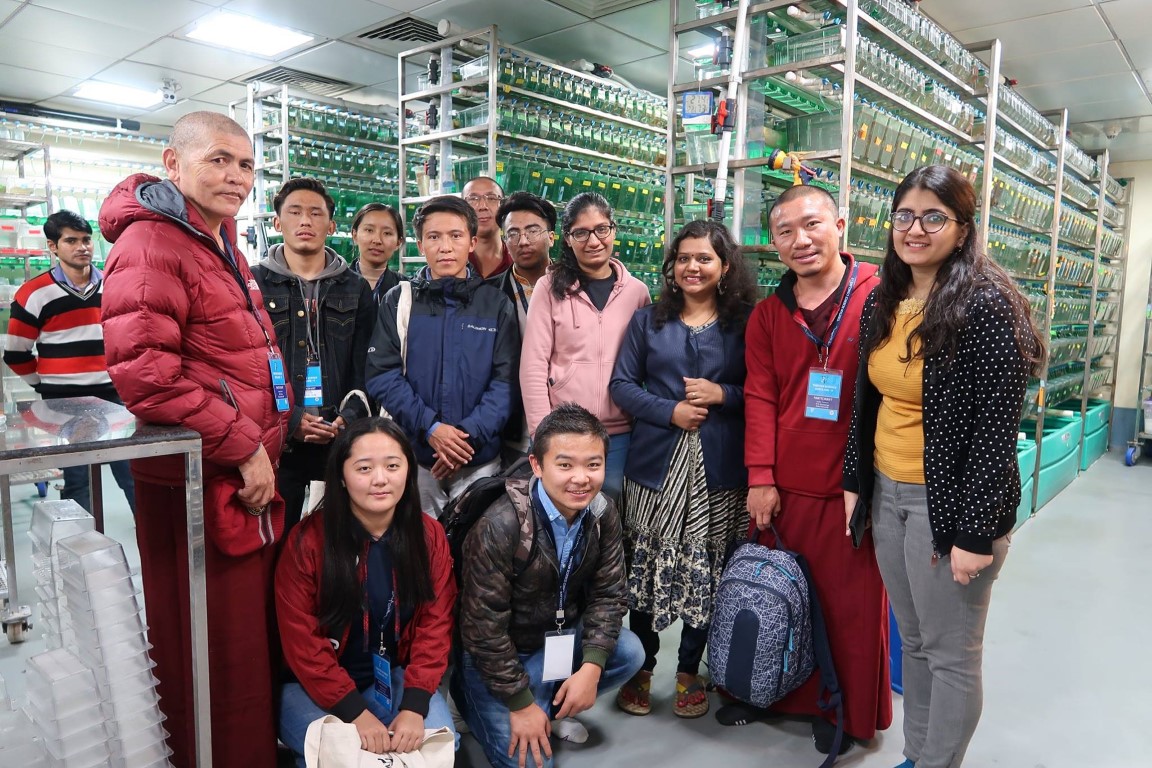
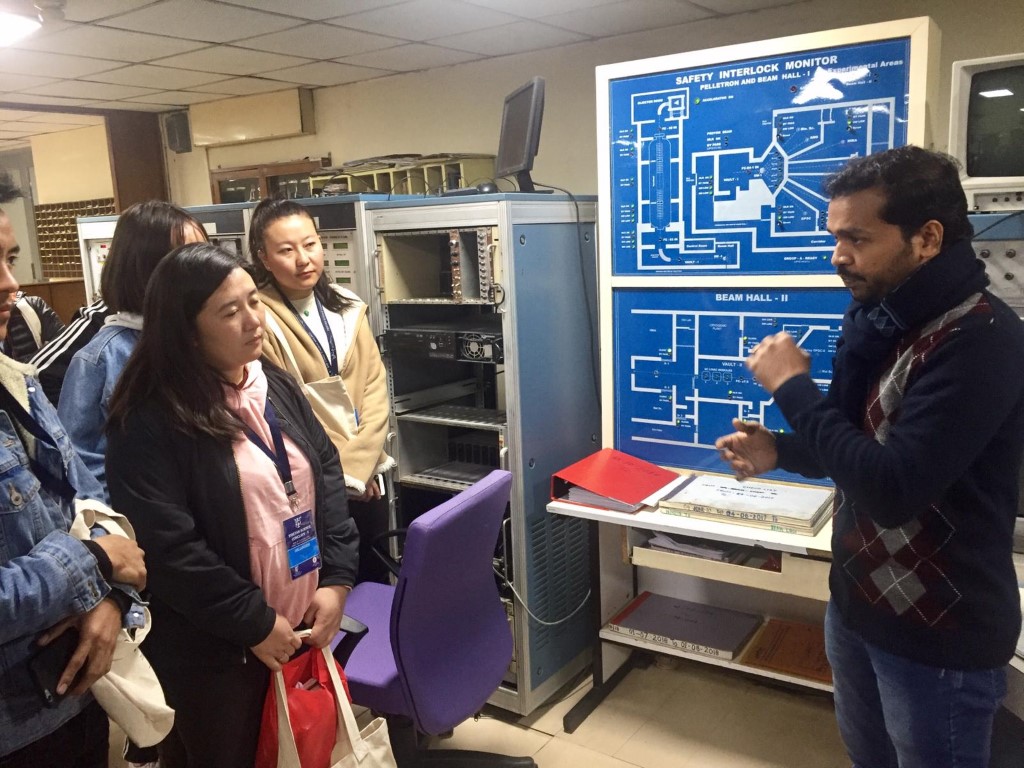 Physical Science participants being introduced to particle accelerators at Inter University Accelerator Center in Delhi
Physical Science participants being introduced to particle accelerators at Inter University Accelerator Center in Delhi
The last day of the conclave was exclusively dedicated to the exploration and discussion on Buddhist Philosophy and Science as well as on the present status and development of scientific terminologies in Tibetan language. The director of Tibet House-Delhi, Geshe Dorji Damdul started the day by giving an educative lecture titled ‘Introduction to Ancient Indian Psychology and Logics’. He explained the relevant historical background, basics of ancient Indian/Buddhist psychology and important elements of Buddhist epistemology and logics. He also spoke about how Buddhist epistemology and psychology are perfectly consistent with modern scientific way of thinking. The talk generated a lively discussion with the participants asking numerous interesting and challenging questions. Later, Geshe Ngawang Sonam from the Office of His Holiness the Dalai Lama spoked about the significance and relevance of ancient Indian psychology in the context of modern scientific world. He also elaborated on why Tibetan language surpasses most existent world languages when it comes to discussing philosophy and logic. Just like the earlier talk, Geshe Ngawang Sonam’s presentation provoked a lively and interesting discussion among the participants. Overall, these sessions provided a glimpse into the beauty and richness of ancient Indian Psychology & Logics, and inspired many of the participants to engage in further studies.
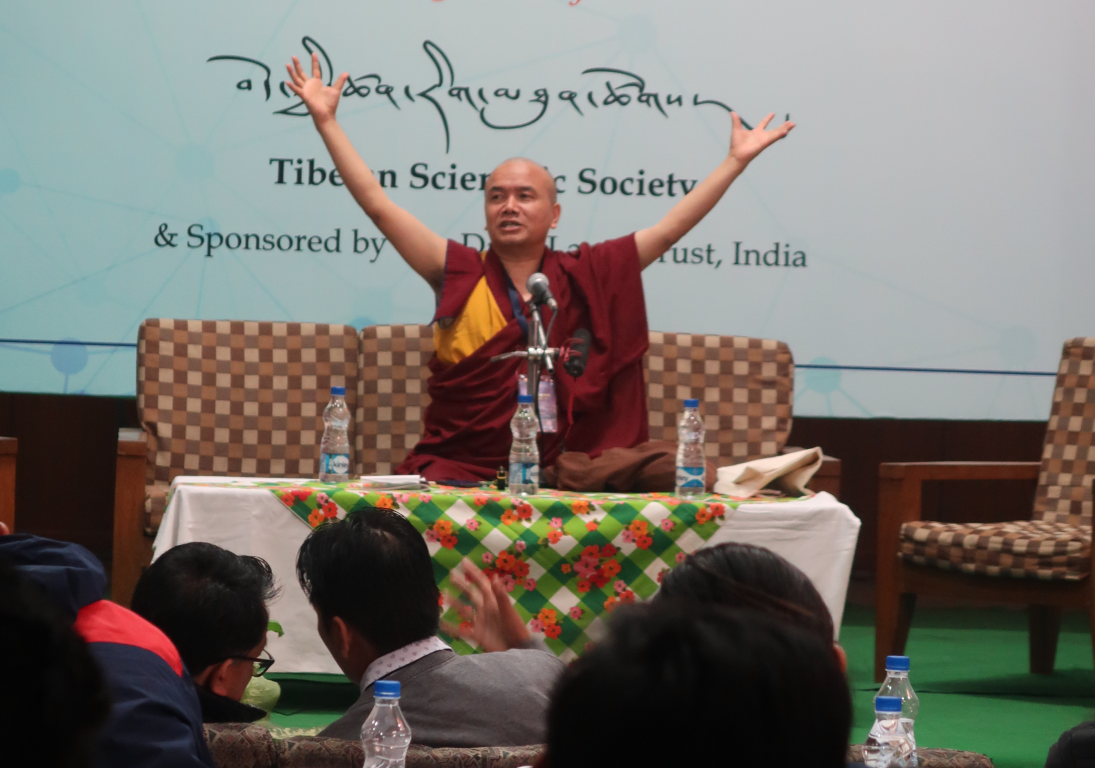
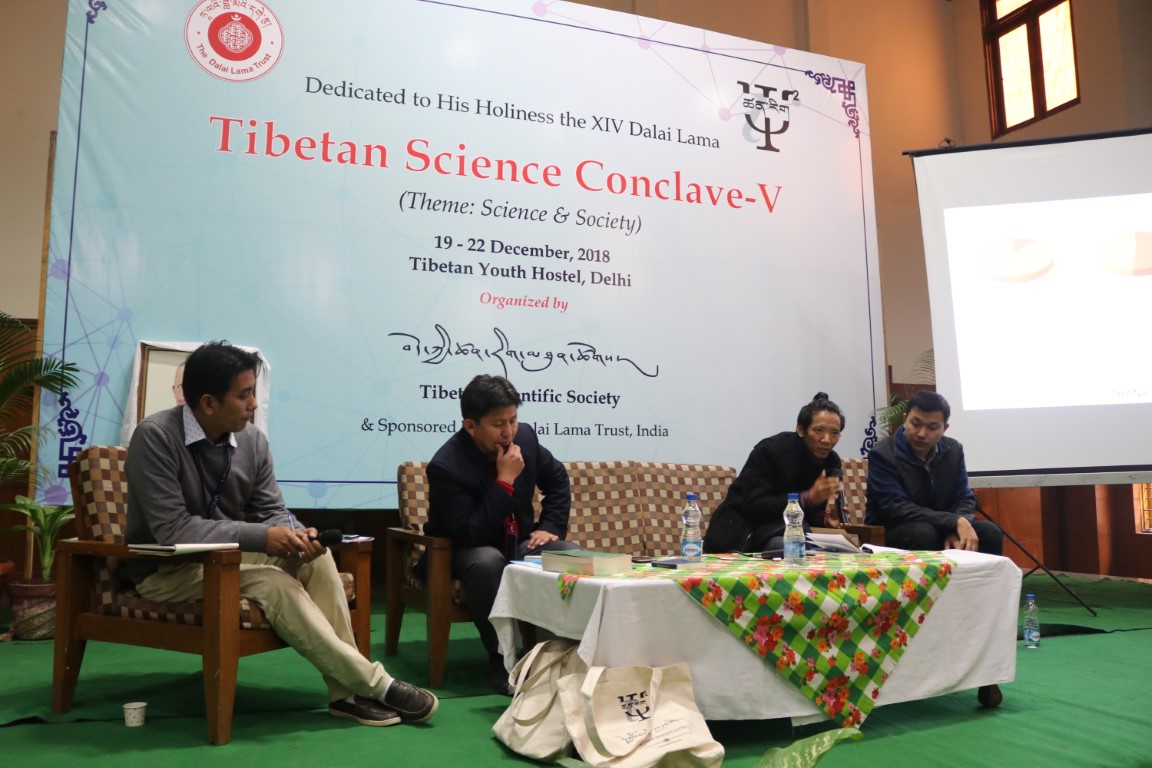
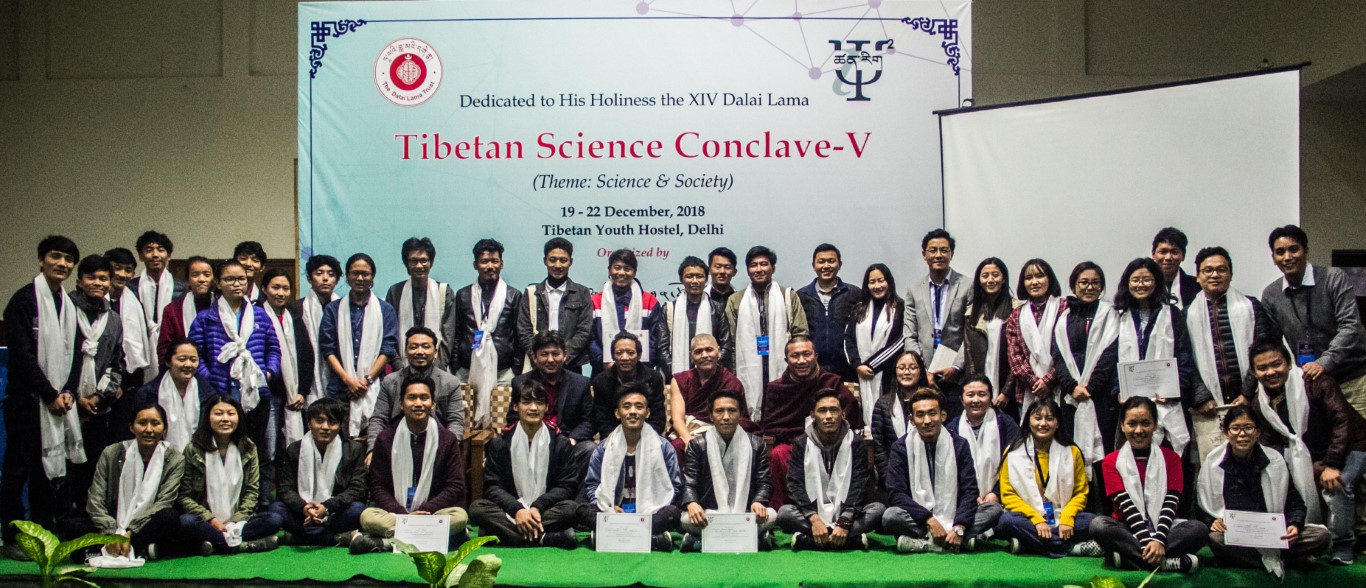
Featured Speakers
Dr. Pema Yangchen (Chief Guest)
Kalon for Education Department
Central Tibetan Administration
Prof. Y. S. Rajan (Keynote Speaker)
Honorary Distinguished Professor
Indian Space Research Organization, Bangalore
2012 Padma Shri Recipient
Hasan Jawaid Khan
Editor
National Institute of Science Communication and Information Resources,
New Delhi
Geshe Dorji Damdul
Director
Tibet House, Delhi
Geshe Ngawang Sonam
Buddhist Scholar,
Interpreter and Translator Office of His Holiness the Dalai Lama
Tenzin Choedon, PhD
Research Associate
Transcriptional Regulation Group, ICGEB, Delhi
Dorje Dawa, PhD
Assistant Professor of Environmental Engineering
Cluster Innovation Center, University of Delhi
Karma Thupten
Head of Science Department Library of Tibetan Works & Archives,
Dharamsala
Tenzin Choephel, PhD
Sr. Aerospace Engineer
Pratt & Whitney, USA
Tenzin Nyibum, PhD
Assistant Professor
Gargi College, Delhi University, Delhi
Tenzin Passang, PhD
Co-director
Drepung Loseling Meditation and Science Center,
Mundgod
Kalsang Tharpa, PhD
Senior Scientist
SABIC Research & Technology, Bengaluru
Urgyen Tenzin
Chief Editor & Head,
Terminology Desk Department of Education, CTA
Lobsang Dhargyal, PhD
Post-Doctoral Fellow,
Harish-Chandra Research Institute, Allahabad, India
Kunzes Dolma, PhD
Research Associate,
Indian Institute of Technology, Kanpur, India

